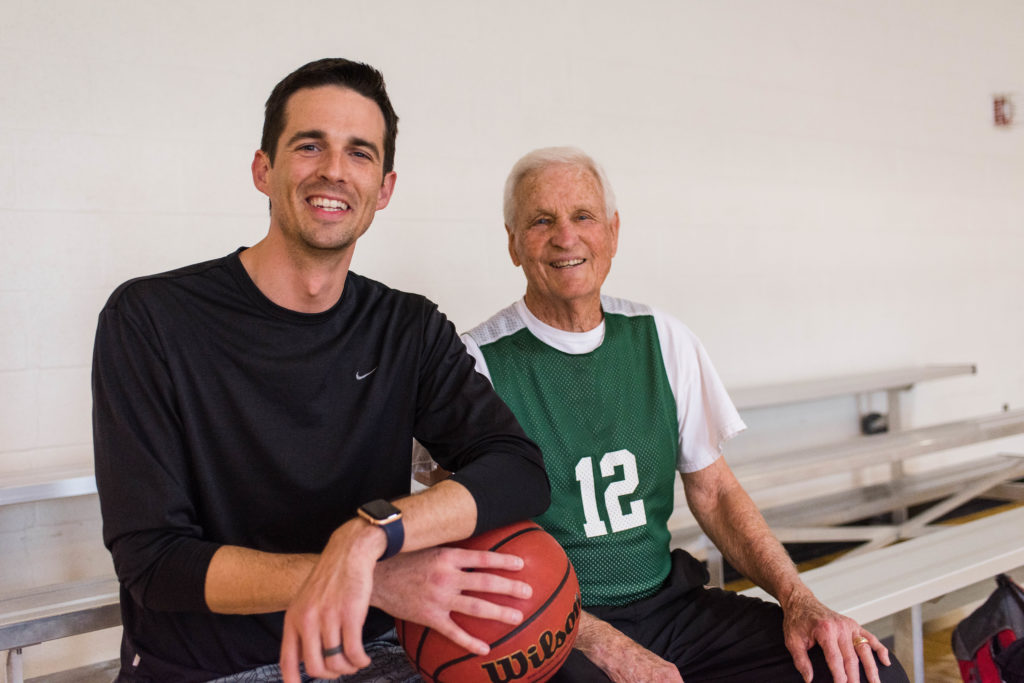
By Eric Ellis | March 15, 2019 | Financial Planning
After the Pistons beat the Lakers 19-18 in 1950, the NBA had enough.
Yeah, that’s right. Nineteen to eighteen.
Not a football game. Basketball.
This nail-biter of a game was the straw that nearly broke the camel’s back. At that time, there was no shot clock. Back then teams that felt they were overmatched would often hold the ball in a lame attempt to run out the clock. As you could imagine that is not a fun game to watch.
If the game isn’t fun to watch, no one wants to go to the game.
If no one wants to go to the game, no one buys tickets.
If no one buys tickets, the league can’t pay for the goals, the uniforms, the referee’s whistle, or even the basketball itself.
This strategy nearly killed the NBA.
This same strategy could leave you in bad shape too when it comes to retirement.
A lot of people try the same idea when it comes to financial planning. They’ve worked their entire life to build their wealth so they can enjoy retirement. They’re comfortable now. They do not want to lose it. They assume they can use what they’ve saved to last the rest of their life. While the feeling is understandable, this strategy could be just as damaging as the absence of a shot clock for the NBA.

Joe Sykes & Eric Ellis Photo by Lucas Chambers
Why can’t you just run out the clock?
You will live longer than you think.
For every married couple who is 65 today, half will have their spouse or themselves live to age 90¹. Most of us underestimate how long we’ll actually live by a pretty wide margin. Life expectancy in the US when social security was started was 63. Today it is over 80. Amazing advancements in the medical field along with more knowledge of how diet and exercise affect our bodies are helping us live longer and healthier lives. Retirement used to be for only a select few and it lasted just a few years. Today, we now have to prepare ourselves with the real possibility of a 20-year, 30-year, maybe even a 40-year retirement. Sound financial planning is crucial.
Expenses will be higher than you expect.
The average house cost $39,500 in 1975. Today it is $377,000.² Nearly a 10x increase in 44 years. There are some things that are becoming less expensive. The growing trend is goods are getting cheaper, but services are becoming more expensive. For example, TVs are becoming cheaper, but TV services are getting more expensive. Many of the services that are increasing the most are in areas that most people older than 65 will encounter, such as healthcare, prescription drugs, and assisted living. These increased expenses can be a surprise to many people just as the NBA was taken off guard by the fewer and fewer people who watched their games.
Expectations are Higher.
Take a second, and imagine what your ideal retirement would look like. Really think about it. You probably did not think of sitting in a rocking chair every afternoon watching traffic. How about this instead; finally taking an Alaskan cruise, buying a 1963 red Jaguar XKE, or learning how to make your own wine. Sounds a little bit better, doesn’t it? Retirement is now the time to do the things you’ve always wanted. Go on a second honeymoon, visit your great-great grandfather’s home town in Wales, go on a week’s hike in the mountains, or join a bourbon club. With higher expectations comes higher demands from your savings. You can do it. Keeping your investments too conservative may hold you back.

Joe Sykes photo by Lucas Chambers
What to do?
What would have happened if the NBA did not bring in the shot clock? Would they have survived?
Living longer and having higher expectations are a great thing! With them come some challenges. What should you do? Trim your budget? Hope you die early? (doesn’t sound appealing to me). Drive for Uber?
Sound financial planning is key. One way of getting the results most people need to solve for those challenges is staying invested in areas that will continue to grow your assets longer. This means weathering the short term swings the market has as a tradeoff for higher results. What does this look like? Going back to 1980 the market usually drops 14% in price within each calendar year. This is uncomfortable. However, the market still finished positive 3 out of every 4 years and the average annual return was 8.4%.³ There isn’t a person alive who would embrace seeing the value of their investments go down 14% soon after retiring. That is a reasonable reaction. This simple advice may help when, not if, those times come. These moves in the market are normal.
Focus on your goals instead of the day to day moves in your investments. This will make the journey through retirement less stressful.
When the Pistons played the Lakers in 1950 they thought the best way to win was holding the ball and running the clock out. They did not realize that while that would win the game that night, the way they won it could kill the sport they loved.
Thankfully the NBA added the shot clock and the sport evolved into what we loved watching over our lifetime. If the NBA didn’t add the shot clock we may not have witnessed the finesse of Magic Johnson, the smoothness of Dr. J, or the competitiveness of Michael Jordan. By staying invested longer, you may have a better likelihood of accomplishing your goals.
Retire Confident,
Eric Ellis
Financial Advisor
Ellis & Company Retirement Strategists
 931.905.0050
931.905.0050



